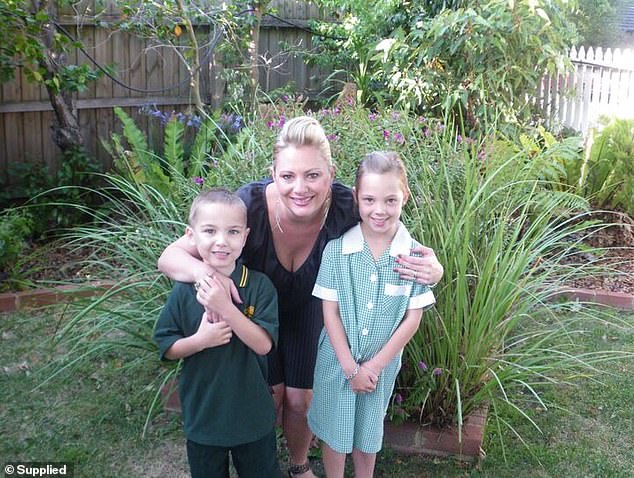
The idea of having a ‘mummy wine’ at the end of a difficult day with the kids has been popularised on social media, making one former alcoholic furious.
Justine Whitechurch, 50, has been sober nine years – and claims drinking in front of children can be just as damaging as physical child abuse.
Speaking to FEMAIL she took aim at every influencer, funny meme, post or joke online glamourising alcohol as a coping mechanism for parents, particularly mums.
‘When it comes to mummy wine culture, which says it is okay to have a wine if your children have been boisterous or difficult or whatever, it teaches them that they are the reason you are drinking,’ she said.
‘It teaches them that alcohol can be used as a coping mechanism, which isn’t healthy.’

Justine Whitechurch, 50, as been sober for nine years – her children (pictured) are now young adults. At her peak Justine would drink at least three bottles of wine each day
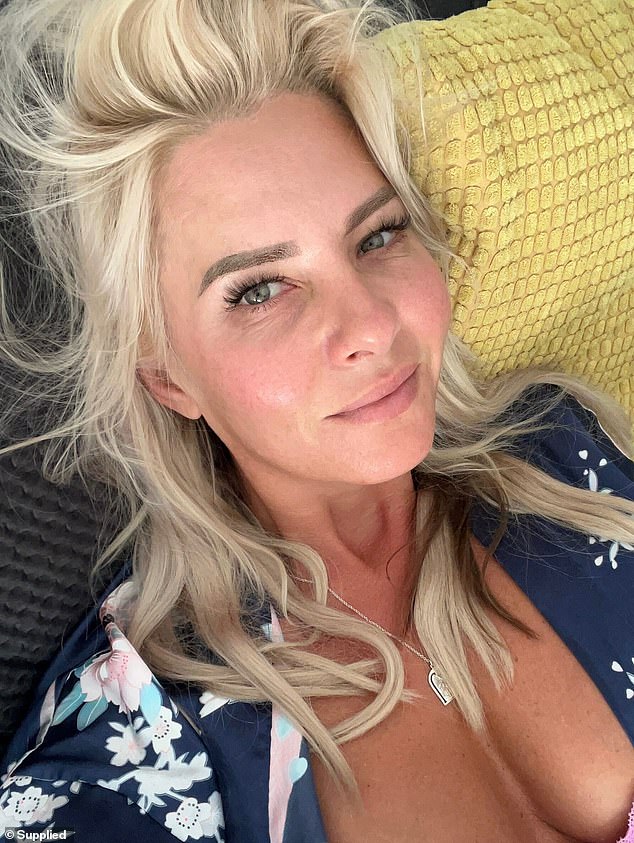



The former alcoholic likens drinking in front of children to child abuse as it teaches them bad coping mechanisms
The mother-of-two said the fact ‘mummy wines culture’ is often supported by other women is concerning.
‘It is egged on by other women, they support and excuse the behaviour,’ she said.
Justine broke a generational cycle of alcohol abuse when she kicked her habit nine years ago, she says she gave up ‘for her children’.
‘In my home it’s no longer normal to anesthetize at the end of the day because work was s**t, the traffic was bad, the electricity bill arrived, the dog peed on the carpet, the spaghetti overcooked and the kids are screaming at each other incessantly.
‘I’ve demonstrated that chugging away on the largest glass of wine I could possibly pour is not a coping mechanism. It is an excuse,’
‘I’ve created a new precedent (for my children) that will hopefully break the societal curse that makes us believe that we are not meant to ‘feel uncomfortable’ and that the answer to all of our awkward moments is making them go away.’
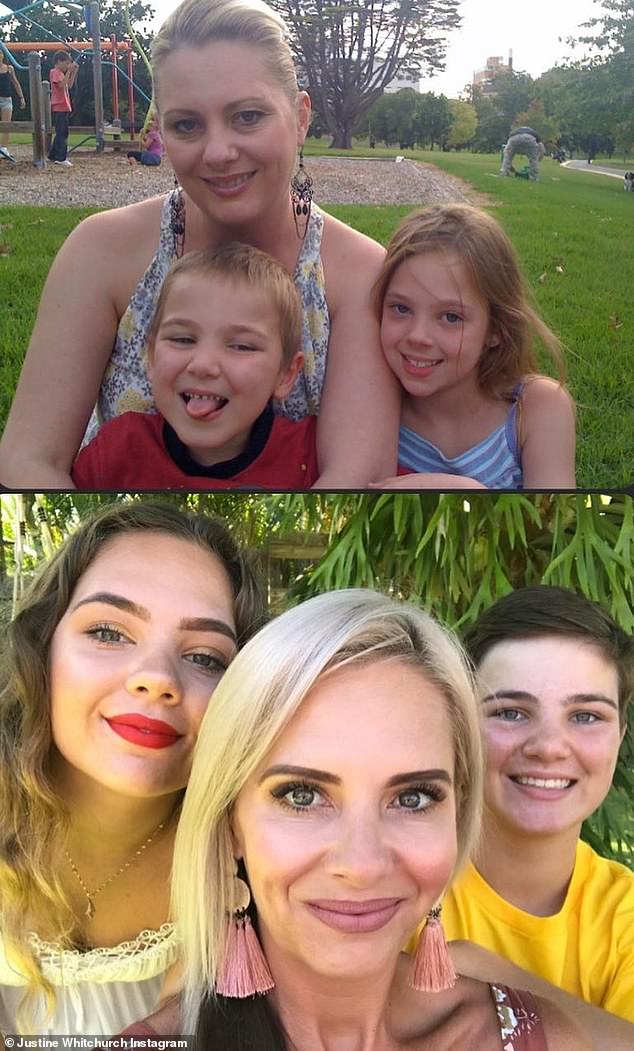





Justine’s crippling addiction to alcohol nearly killed her has revealed what the realities of having a parent with a drinking problem are (pictured with her kids when she had an addiction and now)
At the peak of her addiction she was drinking three bottles of wine each day, sometimes sneaking in a few vodka shots on the side.
She admits her habit was more extreme than many other parents – the concept is the same.
As is the impact on children.
‘They learn they can have a drink when they are feeling upset, stressed, tired. They ignore their natural coping mechanisms like diet and exercise.’
Justine said mums who find themselves having a drink to cope need to shake the habit before it is too late.
‘It is important to know the time will pass as well – the stress will dissipate if you give it more than five minutes to reach for a drink,’ she said.
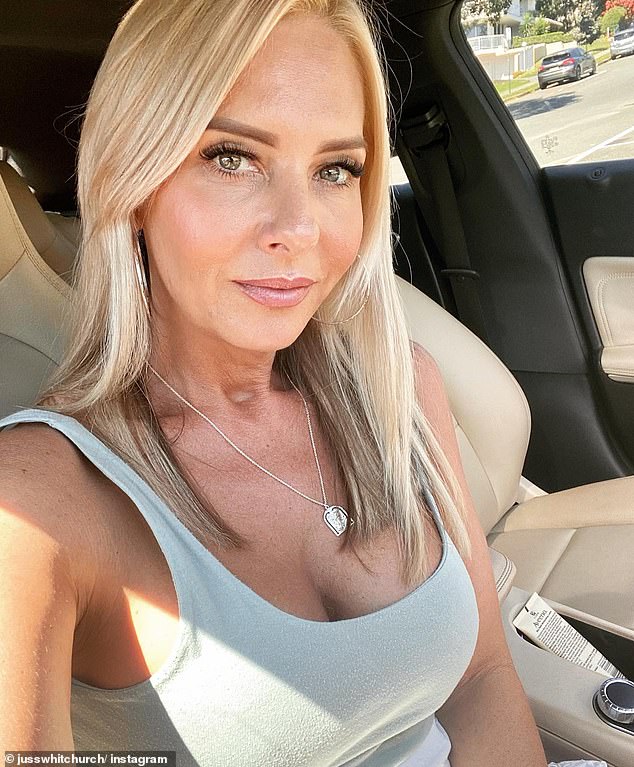





She says funny memes about ‘mummy wines’ normalise and glamourise ‘grey area drinking’






She feels better now, aged 50, than she did in her 30s or 40s because she isn’t using alcohol to self medicate
She also suggested people find new friends if the behaviour is being supported or normalised in their circle.
‘At the time I was in a social circle where I wasn’t abnormal – we all drank for the same reasons – just in different capacities – it was abnormal not to drink,’ she said.
The mum also took aim at people who use alcohol to celebrate, noting that’s dangerous for children to see as well.
She stopped short of saying alcohol should never be consumed in front of children.
‘If you are the kind of person who can have a drink, in a social setting, then go for it,’ she said.
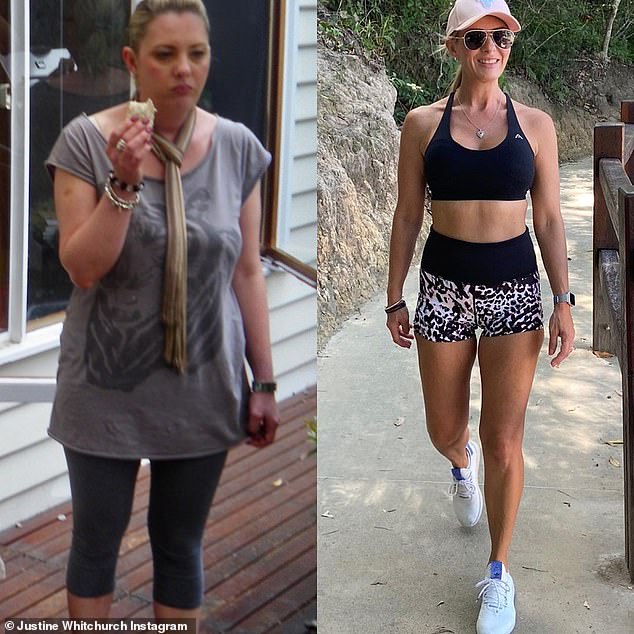





Justine is a firm believer in using exercise as a natural coping mechanism – instead of reaching for the bottle
‘A wine with dinner when friends are over isn’t something to worry about. People who can do that, who can take alcohol or leave it, can do that.’
The author, who now devote much of her life to helping others get sober, said the drinking patterns of anyone the child looks up to should be examined.
‘You see videos of kids picking up beers and pretending to have a swig like dad,’ she said, noting mums aren’t the only ones glamourising alcohol use.
‘You need to set boundaries, if you have friends over and they get sloshed at dinner you have to think about your children who are being exposed to that,’ she said.
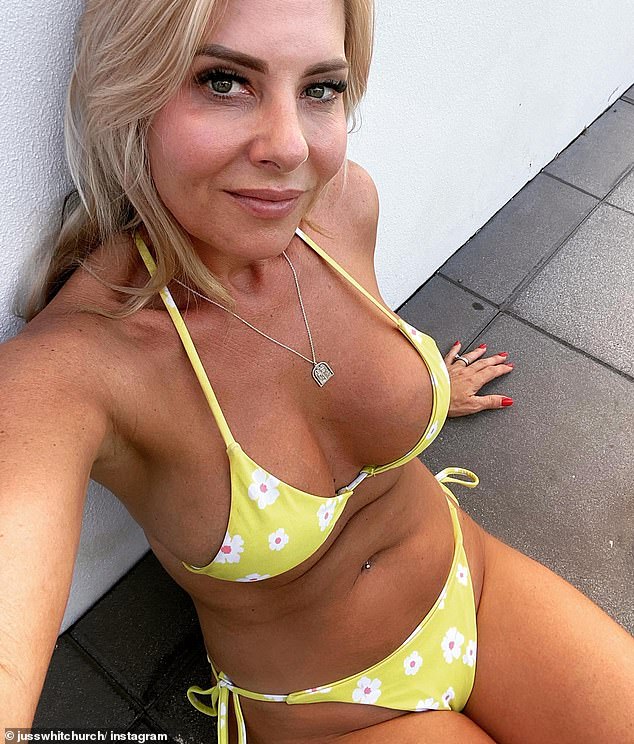





‘To me drinking as a coping mechanism, in front of your kids is no different exposing a child to physical abuse,’ she said
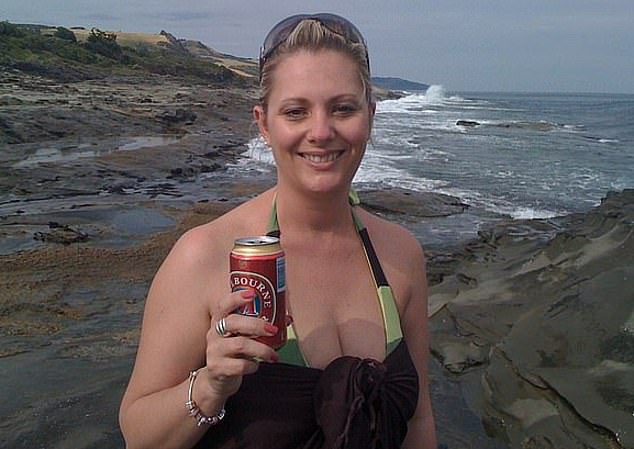





Justine quit alcohol when she was 40 years old after she spent most of her thirties ‘medicated from alcohol 24/7’ (pictured at the height of her addiction)
Justine said her children who are now 18 and 21 didn’t know the extent of her drinking habit at the time – despite it diminishing her natural abilities as a mother.
But she has since had big conversations with them about her alcoholism, genetic risks, and the dangers of using alcohol as self medication.
‘To me drinking as a coping mechanism, in front of your kids is no different exposing a child to physical abuse,’ she said.
‘If child sees there is no other option to fix a situation or to get through argument than using physical force then that’s what they will do – it is the same thing.’
For support for alcohol-related problems and addiction you can contact one of the many services available, speak to your GP, local health service or call a helpline. There are trained telephone counsellors available in every Australian state and territory.
Justine’s recovery story and the steps she took to get sober are detailed in her book, Sobriety delivered EVERYTHING alcohol Promised, is available on Amazon and her website.
Source: | This article originally belongs to Dailymail.co.uk